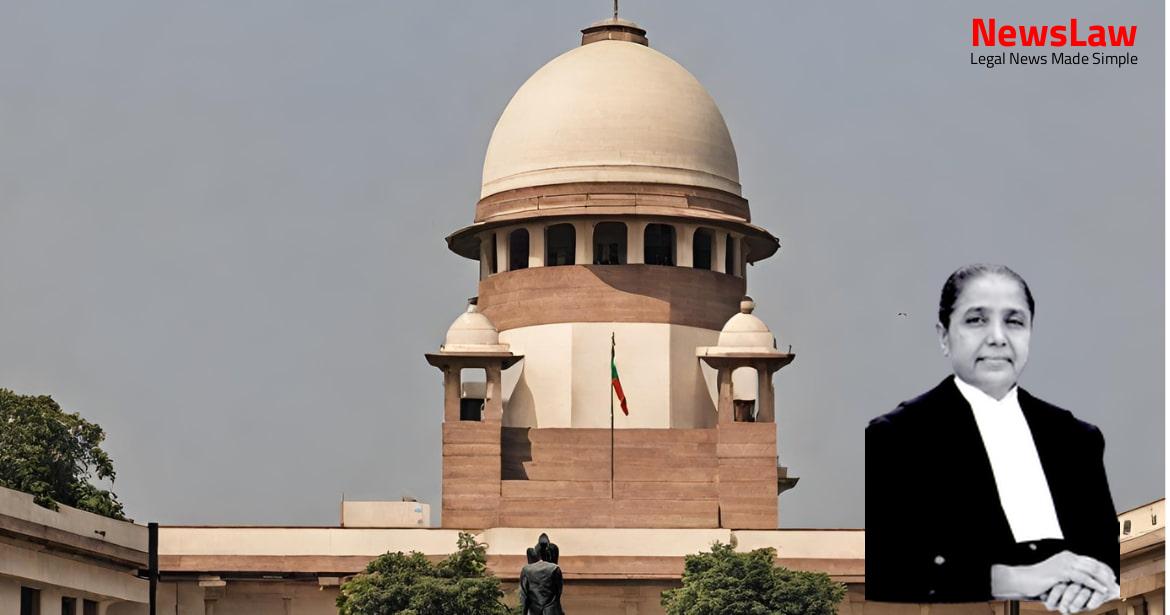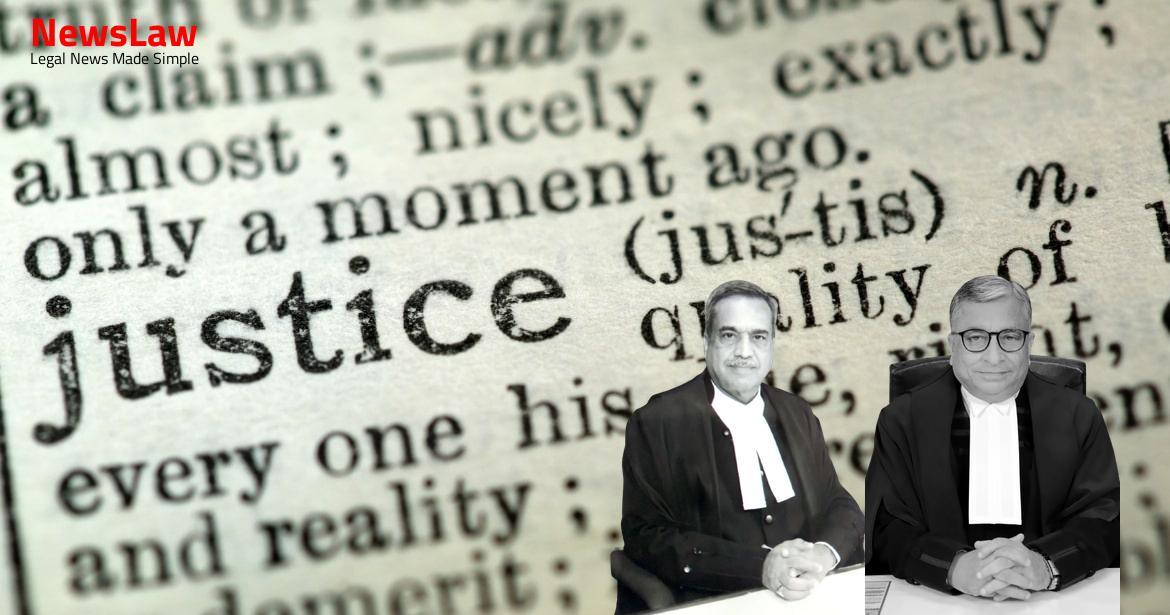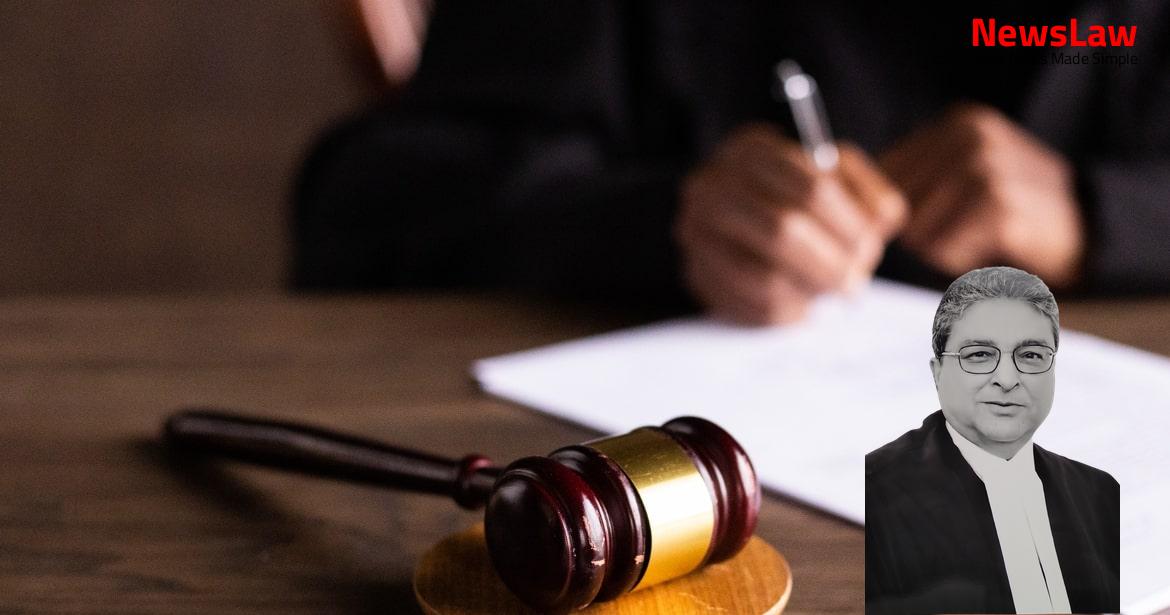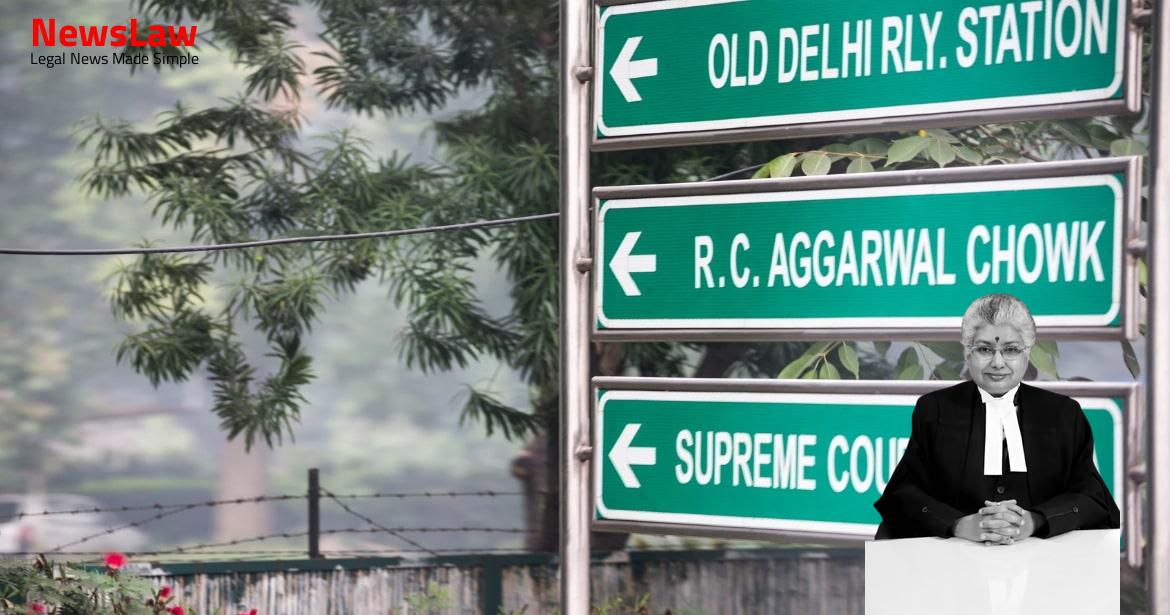In a significant legal development, the Supreme Court of India has delivered a crucial judgment in the case involving BPCL and Go Airlines. The dispute centered around jurisdictional issues in arbitration, with the Court addressing the scope of reference and the validity of counterclaims. This case has far-reaching implications for arbitration agreements and the resolution of commercial disputes.
Facts
- The appeal arises from a judgment dated 07.12.2011 of the High Court of Bombay.
- The High Court allowed the appeal filed by Go Airlines by granting jurisdiction to the Arbitrator to consider the counter claim related to CENVAT credit.
- The Agreement for Aviation Fuel Supply was dated 01.01.2007 between Bharat Petroleum Corporation Limited (BPCL) and Go Airlines.
- The Arbitrator’s order dated 18.04.2011 was challenged by Go Airlines in an appeal under Section 37 of the Act.
- The High Court held that while the Arbitrator could reject the counter claim on merits, dismissing it at the threshold was not justified based on the arbitration agreement.
- The High Court allowed the appeal, setting aside the Arbitrator’s order and affirming the Arbitrator’s jurisdiction to entertain the counter claim.
- The appellant raised a claim for interest for delayed payments of fuel supplied from 01.04.2009 to 31.03.2011.
- The respondent disputed the amount of outstanding interest mentioned in a letter from the appellant.
- The respondent demanded CENVAT invoices from the appellant for the first time in a letter dated 05.05.2010, after arbitration had commenced.
- The appellant objected to the counter claim of CENVAT invoices as beyond the scope of the Arbitrator.
- The Arbitrator allowed the application under Section 16, ruling the CENVAT invoices counter claim was out of jurisdiction.
- Another Aviation Fuel Supply Agreement was formed between the parties for the period from 01.04.2009 to 31.03.2011.
- Dispute over interest payment led to arbitration being initiated with Mrs. Justice (Retd.) Sujatha Manohar appointed as Arbitrator.
- Appellant mentioned that the respondent had never asked for CENVAT invoices during the previous agreement.
- Arbitrator deemed the counter claim by the respondent for damages due to ‘Cash and Credit’ imposition as maintainable.
- Respondent defended the counter claim stating it was within the scope and jurisdiction of the Arbitrator.
Also Read: High Court Acquittal Case of State of Uttar Pradesh v. Jai Prakash
Issue
- The issue at hand is whether the counter claim regarding CENVAT invoices was within the scope of reference to arbitration.
- It needs to be determined if the learned Arbitrator had jurisdiction to consider the counter claim regarding CENVAT invoices.
- The High Court’s decision on the jurisdiction of the Arbitrator in this matter is also a key point under consideration.
Also Read: Judgment Review: Supreme Court’s Ruling on the Capital Punishment Appeal
Arguments
- Learned Senior counsel for the appellant argued that the counter claim regarding CENVAT invoices is outside the terms of arbitration agreement
- Appellant contended that the counter claim does not arise from the terms and conditions of the agreement under which the Arbitrator has been appointed
- Respondent’s Senior counsel argued that the counter claim falls within the terms of the agreement dated 01.01.2007 and the second agreement dated 01.04.2009 for supply of Aviation fuel
- Levy of service tax on domestic air travel was introduced by the Finance Act, 2010, and issuance of CENVAT credit invoices was not required before 01.04.2010
- Learned Senior counsel for the appellant submitted that the Arbitrator can decide only specific disputes as per the jurisdiction outlined in the reference
- Reference to arbitration can be in respect of all disputes between the parties or all disputes regarding a contract or in respect of specific enumerated disputes.
- Arbitrator has jurisdiction to decide all disputes raised in the pleadings subject to any limitations placed by the arbitration agreement.
- Clause 7(ii) of the agreement requires the invoices issued by the respondent to contain taxes and duties, which has been refused by the appellant resulting in a dispute between the parties.
- Arbitrator should not have rejected the counter claim at the threshold by holding that it is outside his jurisdiction.
- Section 23 read with Section 2(9) allows a respondent to raise a counter claim unless otherwise agreed in the arbitration agreement.
- Arbitrator will exclude excepted matters from arbitration if the agreement provides for arbitration of all disputes but excludes certain matters.
Also Read: Contract Termination and Equipment Forfeiture: Supreme Court’s Ruling
Analysis
- The arbitration agreement between the parties is crucial in determining the jurisdiction of the arbitrator.
- The respondent claims that the appellant did not issue CENVAT invoices as required by Clause 7(ii) of the agreement.
- The courts’ assumption that specific disputes must be referred to the arbitrator by the Chief Justice is deemed baseless.
- The arbitrator appointed under Section 11 of the Act can decide both the applicant’s claims and respondent’s counterclaims.
- The arbitrator has the authority to determine the arbitrability of counterclaims and whether they fall within the scope of the arbitration reference.
- Rejecting a counterclaim at the outset due to jurisdiction issues is deemed improper; it should be addressed after an inquiry.
- Both parties have the right to file counterclaims, provided they are arbitrable and within the agreement’s limitations.
- If the arbitration agreement necessitates disputes to be specifically referred, the arbitrator’s jurisdiction is limited to those specific disputes.
- The respondent’s counterclaim regarding CENVAT invoices relies on Clause 7(ii) of the agreement.
- Failure of the appointing authority to formulate and refer disputes to arbitration may impact the process.
- Non-compliance with financial terms like factoring limits may lead to a review of discount arrangements and payment terms.
- The High Court’s decision to set aside the order of the learned Arbitrator dated 18.04.2011 was deemed appropriate.
- The court refrained from considering the contentions raised by the senior counsel at this stage.
- Expressing any opinion on the contentions could prejudice the parties in ongoing or future proceedings before the Arbitrator.
Decision
- The High Court of Bombay judgment dated 07.12.2011 in Arbitration Appeal (Lodging) No.14228 of 2011 is affirmed.
- The appeal is dismissed with no costs imposed.
- The learned Arbitrator is directed to continue with the matter based on its own merits and in accordance with the law.
- The observations made by the High Court regarding the availability of CENVAT credit under the CENVAT Rules, 2004 are not to be considered as an expression of opinion on the merits of the case.
Case Title: BHARAT PETROLEUM CORP. LTD. Vs. GO AIRLINES(INDIA) LTD.
Case Number: C.A. No.-008227-008227 / 2019



